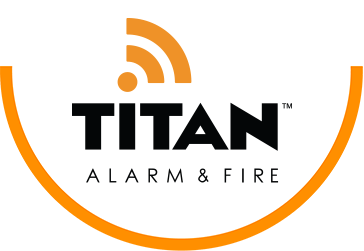
Installing smoke detectors is one of the most important safety steps any homeowner can take. But even the most reliable detectors won’t deliver maximum protection if you don’t locate them properly. The National Fire Protection Association recommends placing smoke detectors in these sections of your home:
- Sleeping areas: Installing detectors in your home’s sleeping quarters is paramount — if a fire breaks out while you’re sleeping, you might not be aware of it until it’s too late. Place a detector in each bedroom and in the hallway where the bedrooms are located.
- Non-sleeping areas: Install one detector on every level of your home that does not include sleeping quarters. Key areas include the living room/family room, near a stairway that leads to the upper level and the basement. Place the basement alarm on the ceiling at the bottom of the stairway that leads to the ground level.
- Cooking areas: Make sure any alarms installed in or near the kitchen are at least 10 feet away from the stove or other cooking appliance to reduce the chance of false alarms.
In addition to strategic placement within your home’s layout, it’s important to arrange your smoke detectors so they can function properly. Follow these guidelines to ensure successful smoke detector placement:
- Mount them high: Keeping in mind that smoke from a fire will rise, mount your detectors high on a wall — no more than 12 inches from the ceiling. If you’re installing an alarm in a room with a pitched ceiling, place it within three feet of the peak but not within the peak’s apex.
- Keep them away from doors and windows: Avoid installing your detectors too close to doors, windows or air ducts — they’re prone to drafts that could interfere with the alarm’s function.
- Consider installing interconnected smoke detectors: An interconnected smoke alarm system offers enhanced fire protection. When one unit detects the presence of smoke, it automatically transmits a signal to all the other connected devices. If you choose to install this type of system, make sure all your detectors come from the same manufacturer to ensure consistency and reliability.
Smoke Detector Maintenance Tips
Most of us know that smoke detectors save lives. They detect the early warnings of fire, which can provide enough time to escape before the flames engulf the structure. They can also prevent deaths from smoke inhalation.
The problem with smoke detectors is that we tend to forget about them once we install them. The only time many of us pay any attention to our detectors is when we hear that annoying chirping sound that warns us of a dead battery!
The Importance of Regular Smoke Detection Maintenance
As with any mechanical device, a smoke detector can malfunction at any time. It’s important to check they are functioning properly, since they play a crucial role in the safety of you and your family.
The following maintenance tips can ensure your detectors will function properly when you need them most:
- Test your detectors at least once a month: Testing your detectors regularly will give you peace of mind and let you know if there are any potential maintenance or repair issues. Testing a detector is easy — with most models, you only need to press and hold the button that protrudes from the cover of the unit. If the alarm sounds, your detector is working properly.
- Replace the battery once a year: By replacing your smoke detectors’ batteries on an annual basis, you’ll always have a fresh battery in the unit. Avoid using “long-life” batteries in older models, as this can inhibit their performance and even render them inoperable during a fire.
- Vacuum them annually: If it’s been a while since you’ve cleaned your detectors, you’ll probably notice a collection of dust and debris in and around the unit. Excessive debris can cause detectors to malfunction. By vacuuming them once a year — a good time is when you change the batteries — you can prevent the build-up of dust.
- Replace them when the time comes: Most smoke detectors experience a 30 percent failure rate after 10 years of service, so upgrade all the units in your home at least once a decade.
Top 10 Smoke Alarm Facts
Smoke alarms may be the most essential home security feature when it comes to keeping your family safe. They provide an early warning of the presence of fire that enables everyone to get out of the house before the blaze spreads. They’re also required by law by most jurisdictions in Arizona and across the U.S.
Here are 10 facts that will help you get the most benefit from your smoke detectors:
- There are two types of smoke detectors — photoelectric and ionization. Photoelectric alarms are better at detecting slow-burning, smoldering fires, while the ionization version typically provides a faster response to flames. The ideal home security setup includes a combination of both types.
- One smoke alarm in a home is not enough to provide sufficient protection. Install one detector on each floor, as well as in hallways outside of bedrooms. Place them on the ceiling or as high up on the wall as possible.
- Test each alarm at least once per month. Many detectors have a button built into the unit you can press to hear if the alarm sounds. If it doesn’t, you may need to replace the battery.
- Speaking of batteries, replace them in all your detectors once a year. Most detector models also produce a chirping sound that indicates the battery is running low.
- You should replace your smoke alarms about once every 10 years. This reduces the likelihood of failure during a fire and gives you access to the latest upgrades in safety technology.
- Strongly consider interconnecting all your home’s smoke alarms — with an interconnected system, when one alarm detects smoke, it will cause all the others in your house to sound as well, increasing the level of protection.
- Carbon monoxide, an odorless, invisible, highly toxic gas, is another threat to your family’s safety. Consider installing multifunctional smoke alarms that also have carbon monoxide detection capabilities.
- If you plan to paint the interior of your home, be careful not to paint over your alarms. Paint can block the airflow, making it more difficult for the unit to detect the presence of smoke.
- Because of the importance of smoke alarms in ensuring the safety of your family, you don’t want to run the risk of an improper installation. Unless you have the necessary expertise, you should have a professional installer handle the task.
- Your smoke alarms should be part of a comprehensive security system that also includes central monitoring. When your alarms detect the presence of smoke, it will trigger an alert to a remote monitoring team that can immediately determine the nature of the threat and dispatch first responders to your home. Professional monitoring can also reduce the likelihood of false alarms.
Contact Titan Alarm for More Information About Smoke Detectors
If you own a home in the Phoenix or Tucson area, Titan Alarm, Inc. can install a state-of-the-art security system that includes smoke detection and 24/7/365 monitoring. Contact us to schedule a free in-home consultation today.
Page Updated November 1, 2018











